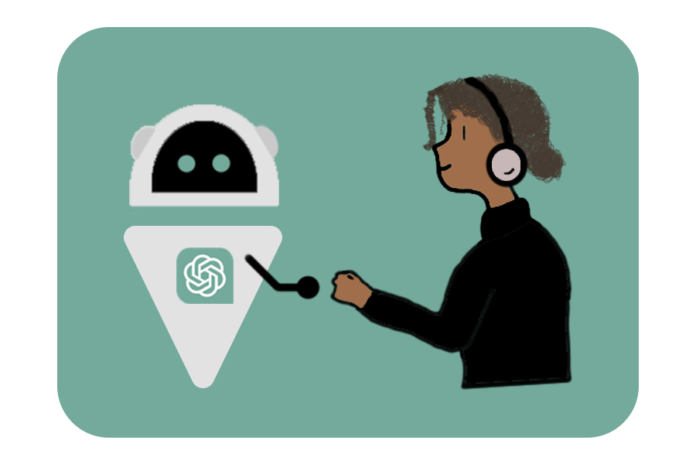AI has always been discussed as a far-off future concept, but it’s quickly becoming a part of our reality
By GEETIKA MAHAJAN — giamahajan@ucdavis.edu
For a long time, artificial intelligence (AI) was a nebulous concept reserved for science-fiction authors and futurists to ponder over. This all changed when ChatGPT, an online AI chatbot, was introduced to the global public at the end of 2022. Since then, discussions of artificial intelligence and the implications of using such programs have increased exponentially as our access to it has grown.
Chatbots are not the only AI seeing vast advances — AI art generators have also been rapidly gaining exposure. Already, AI art is being distributed commercially. In a move that has enraged readers, the newest edition of popular young-adult author Sarah J. Maas’s “House of Earth and Blood” features an AI-generated image on the cover. Many fans of the series claimed that they would not purchase the new edition, citing a “need to protect artists.” This begs the question: protect them from what, exactly?
I believe that there is nothing inherently wrong with AI art; the only thing AI does is create something that is derivative of the thousands of pieces of work that already exist. Similar to existing work, however, does not mean unoriginal — in fact, most prominent artists, if not all, are influenced by their contemporaries in some way. There is also an argument that AI art is not “real art”; these claims are often presented without any metric for what constitutes “real art” and what is “fake art.” Artificial intelligence systems are not just spontaneously generating these works of art or literature. Creating something that is not generic or uninspired requires specific and personalized input from the user. It is true that the end result is produced by a “machine” — but so are photographs and films, and nobody denies creative photographers or filmmakers their right to be included in the art world.
One of the biggest fears surrounding AI is that it will steal jobs from actual creatives in film, literature and art. However, if jobs are lost because of AI’s increasing ubiquity, it will not be due to the AIs themselves, but because corporations have chosen to replace the available source of labor with a cheaper form of production. This is not a new phenomenon — the same thing happened when companies began to outsource labor abroad or replace assembly lines with machines. Critiques regarding the implications of AI-generated art and writing are, inherently, a critique of capitalism and corporations’ relentless “race-to-the-bottom.” Artificial intelligence is just their newest tool.
Broadly categorizing all AI as bad just because of one of its potential consequences is already negatively impacting how the population perceives it. There is an assumption that robots are going to start writing screenplays and making paintings sometime in the future — but this disregards the very real benefits that artificial intelligence can provide right now. It is unique in its ability to provide assistance to people in a variety of career fields, from writing rudimentary lines of code to being able to edit essays or papers. Tech companies have already begun to take advantage of this to prevent burnout amongst their employees, allocating administrative work or automating data collection, for instance. Even creatives can take advantage of this — for instance, using AI-generated images as backgrounds.
Artificial intelligence, like all technology, is not inherently evil. Currently, the entertainment industry is mainly concerned with its negative implications. It’s true that artificial intelligence will change our reality and how we interact with it — but this is true of all technological advancements. The current attitude towards artificial intelligence is no different from how computers or smartphones were viewed when they first came out; we fear new technology, simply because it’s new and unknown. We can see how much easier life became after letters that could take weeks to deliver turned into emails and emails turned into Facetime calls; artificial intelligence, too, is just the newest development in a centuries-long saga.
Written By: Geetika Mahajan — giamahajan@ucdavis.edu
Disclaimer: The views and opinions expressed by individual columnists belong to the columnists alone and do not necessarily indicate the views and opinions held by The California Aggie.




